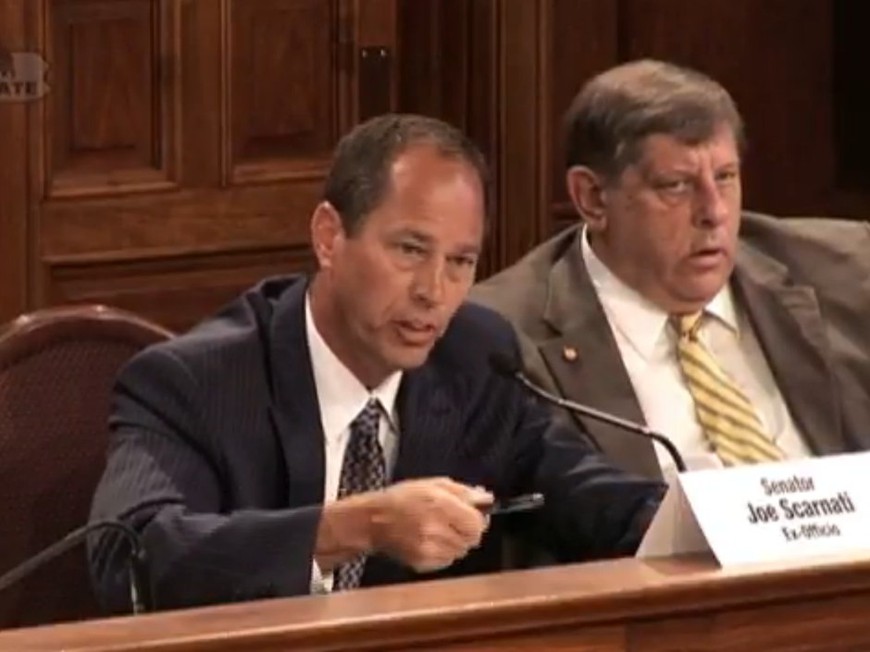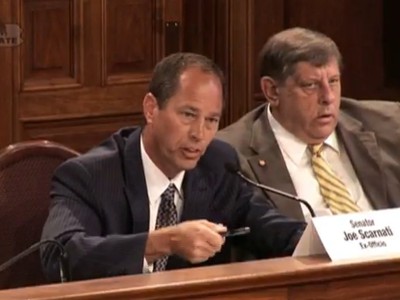

- State revenue projections from Econsult Solutions were presented, showing $68 million in tax revenue for the state in the first year and $110 million in subsequent years.
- Legislators questioned the industry’s ability to utilize technology to determine a player’s true identity.
- As expected, Andrew Abboud, Senior Vice President for Government Relations and Community Development at Las Vegas Sands Corp., attempted to make an argument against online gaming.
Online gaming was one of the hot topics in a hearing held on Tuesday to discuss the state of gaming in the state of Pennsylvania.
Legislators in both the House and the Senate have announced that they plan on introducing a bill that would legalize online poker in Pennsylvania in the coming weeks.
William Ryan, Chairman of The Pennsylvania Gaming Control Board, warned that legislators should be cautious when it comes to revenue expectations, citing New Jersey and its inability to generate the big dollars projected in tax revenue.
Ryan also testified that the implementation of igaming in Pennsylvania would take time and should not be rushed. He estimated that it would take a year before the state would be ready to launch.
Revenue Projections
State revenue projections from Econsult Solutions were presented, showing $68 million in tax revenue for the state in the first year and $110 million in subsequent years.
Initial licensing fees—currently proposed at $5 million per applicant—were not included in the projections that assumed a take rate of 20% on poker and 60% on casino games.
Operators Differ in Opinion
Most operators were united in their wishes to be the “sole licensees” for online gaming and warn that too high a tax rate could be detrimental to the success of online gaming and the projected tax revenues the state hopes to receive.
However, Wendy Hamilton, General Manager at Sugar House Casino, advocated that the state should “proceed with caution” when considering online gaming. Hamilton suggested waiting a year to further observe the states that have already regulated online gaming.
Complimentary or Cannibalizing
Hamilton also indicated that she was not convinced that online gaming would not cannibalize her land-based casino business, stating that there are no facts to determine if it would be helpful or harmful.
Michael Cohen, Senior Vice President at Caesars Acquisition Company, argued that online gaming does not cannibalize land-based casino business. He testified that 91% of Caesars online poker players in New Jersey are new players.
Cohen even made the case that Pennsylvania should push forward with online gaming and then enact a long implementation period so as to allow law makers to achieve a certain level of comfort with the technology and still avoid a possible federal ban on the activity.
Opposition
Legislators questioned the industry’s ability to utilize technology to determine a player’s true identity. Preventing children from access an adult’s account was a talking point for opponents.
As expected, Andrew Abboud, Senior Vice President for Government Relations and Community Development at Las Vegas Sands Corp., attempted to make an argument against online gaming. He seemed to pick up on the fears of some that the online product would cannibalize the land-based products, as he hinted at the same.
Overall there is interest on both sides of the online gaming issue in Pennsylvania, but the line is not drawn between operators and regulators. Instead, it appears there are opponents and proponents in the legislature as well as in the industry—a situation that does not bode well for those hoping to see online gaming in Pennsylvania soon.

